A Consumer Guide to the Trailing Edge: July, 2012
Recycled Goods (#99)
by Tom Hull
Continuing to follow my nose here. Joe Cocker popped up on some lists a few months back, but I wound up holding the note up -- never expect to cover him like I did Aretha Franklin and Donna Summer last time. Plug, Soul Stirrers/Swan Silvertones, and Francis Bebey were recent Christgau picks. Found the Swan Silvertones and the Alex Bradford on my unplayed shelves, and streamed an extra Soul Stirrers, but nowhere near all of them -- my patience for gospel is pretty thin, even though these are prime specimens. Liked the Cash contrast, but I still haven't heard Bootleg Vol. III. Wrote a little squib on Bebey and tried to beg a copy. Never got one, nor even a reply, but I like the looks of the album cover in the right-side stack. The Franklin was a leftover, something I listened to when I was doing her catalogue but left out because I didn't want to get into comps. Might have been nice to also do the companion set, The Very Best of Aretha Franklin: The '60s, but I had rated it previously -- an A, of course.
I did receive a copy of the Woody Shaw box (but none of the others mentioned below), so I wanted to move that. In that case I had previously heard two of the give constituent albums, plus five more sets, enough to get a sense of what his rep was about. Also had the Savant in the queue, and thought I'd explore some more. Didn't find much, but didn't hit everything there, either. Still, he does have records better than those reviewed here: I mentioned The Moontrane (1974) in passing, and there's also In My Own Sweet Way (1987), one of his last. So this isn't quite a career summary for Shaw, but neither was last month's tour through what I didn't know about Franklin. Recycled Goods is still in some sort of limbo, where it make sense to me to include some things and not others.
The Small Faces sets are an example. There are four new 2-CD sets, each adding an extended list of outtakes and whatever to one of their first four albums. They're one of the few Brit Invasion groups I never much listened to -- at least beyond the occasional "Itchycoo Park" -- and I've long admired Ronnie Lane, so I made a project of them. But I didn't feel like trying to swallow them whole until I had an idea of the records proper, so I went into Rhapsody, brought them up, and whittled off the ephemera (what they call "bonus tracks"). After that I felt even less like delving into their trivia.
 |
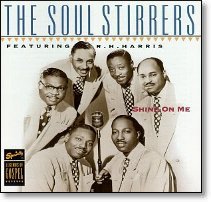 |
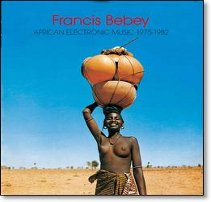 |
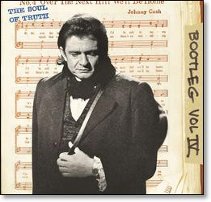 |
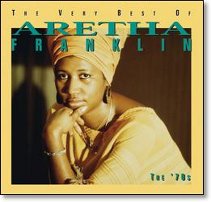 |
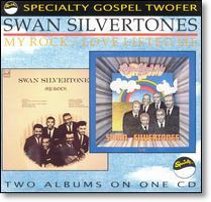 |
Peter Appleyard and the Jazz Giants: The Lost Sessions 1974 (1974 [2012], Linus): Previously unissued session with a little-known English vibraphonist and a group who justify their billing as Jazz Giants: Bobby Hackett (cornet), Zoot Sims (tenor sax), Urbie Green (trombone), Hank Jones (piano), Slam Stewart (bass), and Mel Lewis (drums). Lost Sims albums are always welcome, Jones sparkles, and the vibes add some twinkle. Over-padded with 25 minutes of outtakes at the end, the chatter less a problem than the quick-stop fragments. B+(**)
Paul and Linda McCartney: Ram (1971 [2012], Hear Music): One wonders what young people today might make out of a first listen of "Uncle Albert/Admiral Halsey" -- an ubiquitous single at the time, but actually just a pastiche of ye old music hall with spurious sound effects -- let alone the deservedly obscure rockers that are mostly reiterations of titles like "Monkberry Moon Delight" and "Too Many People" and "Love Is Long" (oh, that's "Long Haired Lady"). At the time he probably thought he was pushing the envelope, although more likely he was just licking it, hoping for drugs. At any rate, he hadn't yet turned into the hack he became. What Linda contributed is anyone's guess. B- [R]
Plug: Back on Time (1996 [2012], Ninja Tune): Short-lived alias for Luke Vibert, who's done more business as Wagon Christ, more still under his own name. In 1995 Vibert issued three drum 'n' bass EPs as Plug, followed by the album Drum 'N' Bass for Papa in 1996 -- all later compiled into a 2-CD set I haven't heard. These tapes date from that period. I've never sorted out what makes drum 'n' bass different from any other electronica flavor, but I like these beat fine, and find the scattered vocals -- samples mostly -- add useful bits of character to the mix. A- [R]
The Soul Stirrers: Shine on Me (1950 [1992], Specialty): The venerable gospel group dates from 1926 in Texas, but more important landmark dates are 1936 when Alan Lomax made the group's first field recording, and 1937 when R.H. Harris joined as lead singer. They were reportedly popular in the 1940s, but I'm having trouble finding recordings before they cut these 24 sides for Specialty in 1950. Then Harris quit, and was replaced by the much younger, and much smoother, Sam Cooke. Harris' voice, while high enough to come clear, would never be taken for angelic -- his rough edges convey the struggle ordinary men have to face in everyday life, supported by his cohort's rhythm but little else. A- [R]
In Series:
Woody Shaw (1944-89) was the last trumpet player featured in Tom Piazza's very useful The Guide to Classic Recorded Jazz (1995, University of Iowa Press). He recorded from 1965-87, starting up in hard bop -- cf. Horace Silver's The Jody Grind (1966) -- and never really going anywhere else. His early records were mostly for Muse, with 1974's The Moontrane possibly as good as he got, although he rarely sounded less than exemplary -- even on otherwise uninteresting albums.
He got a break in 1977 when Columbia signed him -- reportedly at the suggestion of Columbia's trumpet star, Miles Davis -- and turned him loose on five albums, reviewed below. Sony's Legacy division has started to release compact "complete Columbia albums" boxes of their major jazz artists, and Shaw's box is the first (and thus far only) one I've been able to inspect. The others I'm aware of (some drawn from Sony's RCA catalog): Dave Brubeck (19 CDs), Stanley Clarke (7), Paul Desmond (6), George Duke (6), Stan Getz (8), Dexter Gordon (7), Mahavishnu Orchestra (5), Return to Forever (5), Wayne Shorter (6), Nina Simone (9), Grover Washington (9), and on a completely different scale (71) Miles Davis; also a few non-jazz artists: The Byrds (13), Leonard Cohen (11), Sam Cooke (8), John Denver (25), Kansas (11); and some classical music, including Arturo Toscanini (85) and Arthur Rubenstein (142).
Woody Shaw: The Complete Columbia Albums Collection (1977-81 [2011], Columbia/Legacy, 6CD): An inch-thick box which cracks open to reveal six stiff LP-replica covers plus a 20-page booklet, with Stepping Stones spread over two discs with different sets of cover art; for album details, see below, but in general this depends on how much you luxuriate in Shaw's rich, deep tone -- rarely recorded more lushly; also note that Victor Lewis plays drums on the first five. B+(*)
Woody Shaw: Rosewood (1977 [1978], Columbia): The trumpeter's first major label album is majorly ambitious, the crack quintet of two cuts expanding to big band strength on the balance, with bandmates Onaje Alan Gumbs, Clint Houston, and Victor Lewis contributing songs; not sure if the title reflects on the 1923 massacre in Florida that John Singleton turned into his surreal 1998 film, but the album was reissued at the time. B+(**)
Woody Shaw: Stepping Stones: Live at the Village Vanguard (1978 [2005], Columbia): Live quintet shot, with Carter Jefferson (tenor and soprano sax), Onaje Alan Gumbs (piano), Clint Houston (bass), and Victor Lewis (drums); hard to think of this as postbop given that they're still enthralled by the notion that speed is all that matters; matches the 2005 reissue, which lost one track from the 1979 original but picked up three (two previously unreleased). B+(*)
Woody Shaw: Stepping Stones: Live at the Village Vanguard [Bonus Tracks] (1978, Columbia): Continuing on, one track gerrymandered from the original album, four more -- only one from the band, the others: "Solar," "On Green Dolphin Street," and "Days of Wine and Roses" -- previously unreleased, but returns with the 1979 cover art; more varied, plus a lot more Carter Jefferson. B+(**)
Woody Shaw: Woody III (1979, Columbia): All originals, starting with three numbered, self-named pieces arranged for a dozen musicians, with the fourth piece reduced to a sextet with dueling alto saxophonists Rene McLean and James Spaulding, and the saxes trimmed for the closer so the leader can wind up. B+(*)
Woody Shaw: For Sure! (1979-80 [1980], Columbia): Larry Willis moves into the piano chair and contributes a song, but only 2 (of 7) songs are limited to Shaw's quintet (Curtis Fuller's trombone the second horn), the rest adding extra brass (Steve Turre), reeds (Gary Bartz, Carter Jefferson, James Spaulding), percussion (Nana Vasconcelos), and strings; the latter threaten to ick up the works, but the trumpet is sharp and bracing, clearing the air. B+(*)
Woody Shaw: United (1981, Columbia): Quintet plus Gary Bartz (alto sax) on 2 (of 6) cuts, Steve Turre's trombone the second horn, Mulgrew Miller in the piano seat, Tony Reedus taking over the drum slot, title song by Wayne Shorter; the least ambitious and least exciting album in the series, and also the last, not that the trumpet doesn't have a few sterling moments. B
Briefly Noted
Francis Bebey: African Electronic Music 1975-1982 (1975-82 [2012], Born Bad): A minor legend from Cameroon and Paris, started in the early 1960s, died in 2001; this pulls together synth-backed ditties from what must have been his prime, mostly in French, a couple in English. A- [R]
Alex Bradford: Rainbow in the Sky (1954-58 [1992], Specialty): Also known as Prof. Alex Bradford, dominates his group, so dynamic he gets likened to Little Richard (and vice versa); mostly unissued tapes, loses something when the choir (or Bessie Griffin) gets out front -- they tend to wail, but the Prof. knows the way. B+(***)
Johnny Cash: Bootleg Vol. IV: The Soul of Truth (1975-83 [2012], Columbia/Legacy, 2CD): Three gospel albums from the fat middle of his career -- as opposed to his 1959 Hymns and his 2003 My Mother's Hymn Book, a lifetime concern that I credit less to his piety than to his need to "keep movin'": one shelved in 1975, a double from 1979, and another set from 1983 with outtakes to boot; in awe of the power of salvation, earnest in his failings, and too modest to condemn others, with flashes of his trademark rhythm, a little boogie even. A- [R]
Joe Cocker: Joe Cocker! (1969, A&M): One of the great English blues voices applied to contemporary rock songs, pumped up by Leon Russell's church-trained organ, this was the album that set up the tour documented on Mad Dogs and Englishmen; having gotten to the latter first, I find this a bit superfluous, but at the time this must have impressed mightily. B+(***) [R]
Joe Cocker: With a Little Help From My Friends (1969, A&M): His first album, a few months ahead of the eponymous one, a few songs with his name on the credits -- not his strong suit; title arrangement is brilliant but wearing; of two Dylan songs, "Just Like a Woman" is unexceptional, but "I Shall Be Release" sweeps away the original. B [R]
Cotton Mather: Kontiki [Deluxe Edition] (1997 [2012], Star Apple Kingdom): Austin band, cut three albums 1994-2001 of which this one has the rep, including the Oasis seal of approval; sounded more Byrds than Beatles to me at first, but filtered through Big Star and distorted further, at times annoyingly so. B+(*) [R]
Aretha Franklin: The Very Best of Aretha Franklin: The '70s (1970-76 [1994], Rhino): Part of a generally superb series of 16-cut, design common comps, split into two slices for Franklin because, well, why not? The '60s slams harder, of course, and doesn't have anything as iffy as "Bride Over Troubled Water" (not that she doesn't turn in the best one ever), but the relative obscurity just shows what a pro she was becoming. A- [R]
Carole King: The Legendary Demos (1962-71 [2012, Hear Music): A legendary songwriter before she stepped up to the mic and recorded the best selling album of the 1970s, of course she has a shelf full of song demos, and of course they should be legendary -- too bad they aren't: oversung, ham-fisted pounding piano, many with superfluous background vocals, half bound for Tapestry, the others for better singers and arrangers. B- [R]
Wes Montgomery: Echoes of Indiana Avenue (1957-58 [2012], Resonance): Early tapes, four cuts from an unknown studio session and the rest gigging around Indianapolis, his fingerpicking less fluid than it would soon become, the pianists more into boogie, but there are hints of charisma and genius, especially on a final blues improv which you don't have to read any future interest into. B+(***) [R]
Motel Lovers: Southern Soul From the Chitlin' Circuit (1989-2006 [2007], Trikont): The title comes from Marvin Sease's 1989 song, but most of the songs here are from the 2000s, with most of the artists in their 60s, aging blues and soul singers like Bobby Rush and Gwen McRae out to prove they can still talk the talk, and occasionally discover a new wrinkle, like Barbara Carr's "Down Low Brother." B+(***)
Porter Ricks: Biokinetics (1996 [2012], Type): Layering Thomas Köner's ambiences electroniques over Andy Mellwig's heartbeat-like throb, eight tracks adding up to 70:19 of minimalism, acute enough you could dance to it, but you'll probably just enjoy the aura of life. B+(***) [R]
Woody Shaw: Blackstone Legacy (1970 [1999], Contemporary): Possibly Shaw's first album as a leader -- Cassandrite was mostly recorded earlier, but came out later -- a blistering sextet initially spread out over two LPs, six songs on four sides; saxophonists Bennie Maupin and Gary Bartz claim their space and play rough, which turns the trumpeter on. B+(**) [R]
Woody Shaw: Little Red's Fantasy (1976 [2010], Savoy Jazz): Three originals, plus compositions from bassist Stafford James and pianist Ronnie Matthews, in a quintet with Frank Strozier on alto sax and Eddie Moore on drums; a little weak to start, and the postbop tendency to rumble along never quite gains traction. B+(*) [R]
Woody Shaw: Woody Plays Woody (1977-81 [2012], Savant): Previously released material, live from Keystone Korner in San Francisco, five cuts from 1977, one from 1981; all originals to show off the leader's compositional skills, but of course they're mostly frameworks for hot and heavy trumpet blowing. B+(*)
Woody Shaw: Night Music (1982 [1983], Elektra Musician): Hoping for a little quiet storm, but the only time this slows below a gallop is on the closing "All the Things You Are," which gives the trumpet some room but loses the band; trombonist Steve Turre doesn't offer much as second horn, nor does "special guest" Bobby Hutcherson (on vibes). B- [R]
Small Faces: Small Faces (1966, Decca): Latecomers to the Brit Invasion, Steve Marriott and Ronnie Lane tried to make up for it by scratching their blues licks raw and bloody, but didn't come up with anything that sounded like a hit, or a blues, or Cream or Led Zeppelin, even though they were certainly trying. B+(*) [R]
Small Faces: From the Beginning (1965-66 [1967], Decca): Second album, cobbled together quickly from earlier sessions, hence the title, but the first two cuts veer from their blues thrash into fashionable psychedelia (e.g., "My Mind's Eye"), and the second side is stuffed with soul covers ("Come Back and Take This Hurt Off Me," "Baby Don't You Do It"), still better than their originals. B [R]
Small Faces: There Are but Four Small Faces (1967 [1968], Immediate): Moving on to Andrew Loog Oldham's Immediate label, their third LP was again eponymous in the UK, but renamed and reordered in the US to feature "Itchycoo Park," the closest they came to a hit single; the songwriting is tighter, less genre-specific, and I hear more Ronnie Lane, but they struggle, and occasionally suffer (e.g., "Tin Soldier"). B [R]
Small Faces: Ogden's Nut Gone Flake (1968, Immediate): Post-Pepper, everyone's a conceptualist, carried through here with connective dialogue, songs that sink all the way through psychedelia into folkie singalongs, and special packaging you thankfully don't have to deal with in the digital era; in four short albums, they've gone from the Yardbirds (without chops) to the Bonzo Dog Band (without jokes). B [R]
The Soul Stirrers: Jesus Gave Me Water (1951-55 [1993], Specialty): When R.H. Harris departed, baritone R.B. Robinson recruited a 19-year-old replacement: Sam Cooke; early on he fills in, then shares leads with Paul Foster, and later Julius Cheeks -- all three names make the front cover; you'll have no trouble recognizing Cooke in his solos, but you mostly notice the rough tumble of the backing voices. B+(**) [R]
Swan Silvertones: Love Lifted Me/My Rock (1952-53 [1991], Specialty): Another venerable gospel group, founded in the 1930s, featuring Claude Jeter and Robert Crenshaw in a vocal group that never fails to lift you up, even when they sing about Jesus. A-
Henry P. Warner/Earl Freeman/Philip Spigner: Freestyle Band (1984 [2012], NoBusiness): Spigner's hand drums set up a nice homely vibe that Warner's clarinet sometimes flows with and sometimes cuts against; Freeman plays electric bass and piano, most often against the current, just to keep it all interesting. B+(***)
Legend: B+ records are divided into three levels, where more * is better. [R] indicates record was reviewed using a stream from Rhapsody ([X] is some other identified stream source; otherwise assume a CD). The biggest caveat there is that the packaging and documentation hasn't been inspected or considered, and documentation is especially important for reissues. But also my exposure to streamed records is briefer and more limited, so I'm more prone to snap judgments -- although that's always a risk.
For this column and the previous 98, see the archive. Total records reviewed: 3319 (2920 + 399).
Copyright © 2012 Tom Hull.